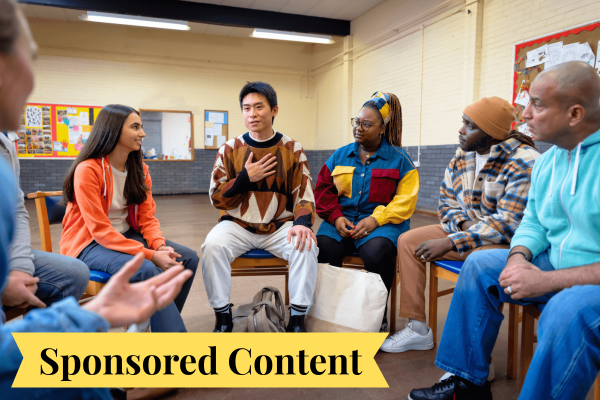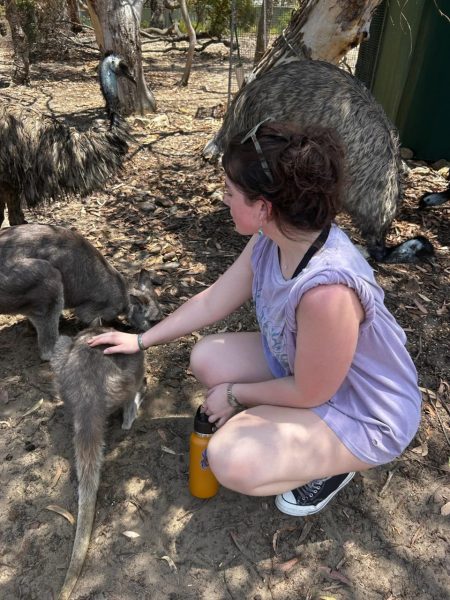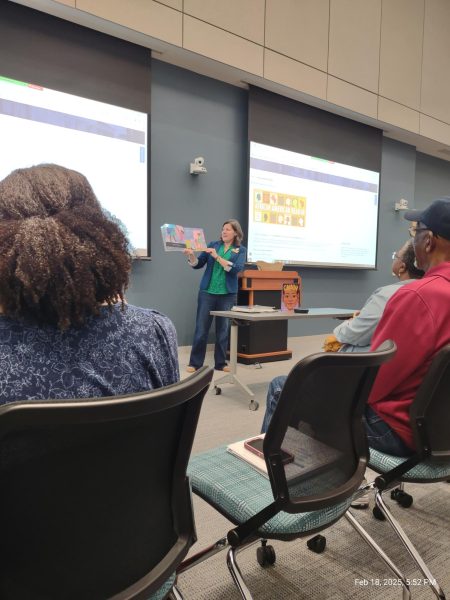Former NFL athlete Wade Davis visits UNC Wilmington
Former professional football player Wade Davis advocates for the LGBTQIA community and on Oct. 6, he spoke to a crowd of more than 500 people in the Burney Center Ballroom as part of the UNCW Presents Leadership Series. Those in attendance included students, student athletes, faculty and staff and members of the community.
Davis currently works as the executive director of the You Can Play project, a group that promotes respect for all athletes, regardless of sexual orientation. As a professional athlete, Davis played for the Tennessee Titans, Washington Red Skins, Seattle Seahawks and twice for NFL Europe.
At the event, he spoke about issues such as sexism and homophobia.
First, Davis relayed his life story and background, beginning with his childhood—raised in the South in a Baptist family. Davis described one of his first exposures to homophobia came from a childhood football game called “smear the queer,” in which the football is tossed into the air as one player, “the queer,” catches it while others proceed to attack.
In high school, he realized his talent in football and track but became surprised and ashamed when he found himself attracted to another male classmate. He compensated by changing his style to baggier, traditionally masculine clothing and by watching pornography to focus on just the girl.
Davis highlighted the difficulties he faced in college—playing the role of the macho athlete around his friends while secretly crushing on a male classmate. On one occasion, while hanging out with this friend, Davis shared his first kiss with another man and then became scared because he enjoyed the kiss. He said he knew that he was gay but felt he couldn’texpress this because of his status as a student athlete.
In college, scouts began paying attention to Davis, and he remembers one trying to find out if he was a ladies’ man. This frightened Davis, because even though his girlfriend at the time was a Calvin Klein model, he feared revealing his homosexuality. So he attended more parties to be seen with more girls.
“They bought it,” Davis said to the crowd.
Though, injuries stopped Davis from continuing his career.
“When what you do becomes who you are, who do you become when you can no longer do that?” he said.
He came out while travelling to New York City. He told the audience about his first visit to a gay club. Soon, he found a group of guys who had a passion for flag football—and they all happened to be gay. He said having support eased his coming out.
But when he came out to his family, Davis’s mother disowned him, he said.
“That’s an abomination—you’re already black,” Davis recalled her saying.
After much time and grief, he said his mother has now reaccepted him and has befriended his partner.
Not all individuals who come out have a similar story, Davis reminded the audience. He informed the crowd that countless youth become displaced from their homes after coming out because their parents can’t accept the reality of their orientation.
Davis presented a challenge to the audience to get involved in shaping the way we address homophobia and sexism.
“Get involved in the Wilmington community. You all are privileged here at UNCW. Use that privilege to change the world,” he said. “If you don’t get involved, you may as well not exist anymore.”
In regard to his talk, Amy Schlag, UNCW LGBTQIA Resource Office Coordinator, described campus involvement opportunities.
“There are endless opportunities for getting involved in the Wilmington community,” she said. “We have a group called Compassion-Knitthat knits and sends items to the Ali Forney Center.” The center provides housing for homeless LGBT youth in New York City.
During the Q&A, Davis recommended this website, which tracks the metrics of homophobic statements such as “no homo” or “you’re a faggot” on Twitter. Davis encouraged the audience to visit the site now and then again during sports season to see just how critical sports fans can be of athletes.
Student Erin McCarty, the LGBTQIA Resource Office Ambassador, attended the lecture and spoke about her reaction after the event.
“My reaction was very positive. I thought it was very refreshing to hear something like this on campus, where masculinity is a big thing with all of the fraternities on campus,” she said. “The takeaway of anti-homophobia and anti-sexism was really refreshing to hear.”











